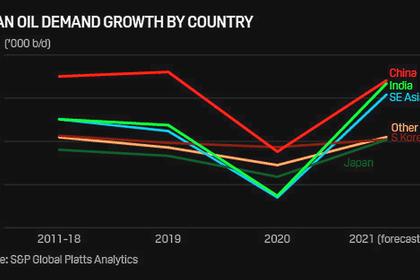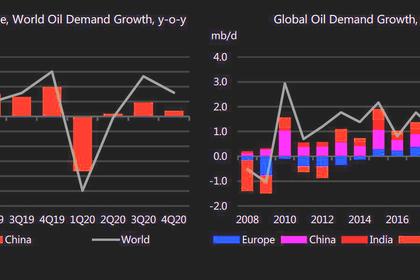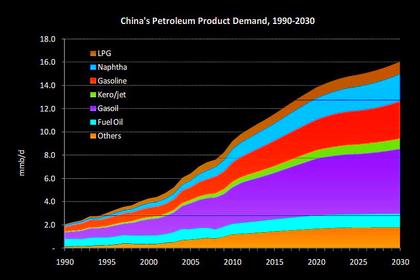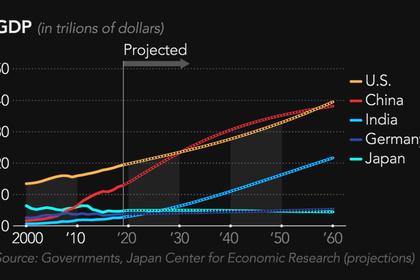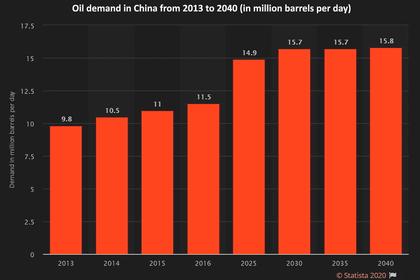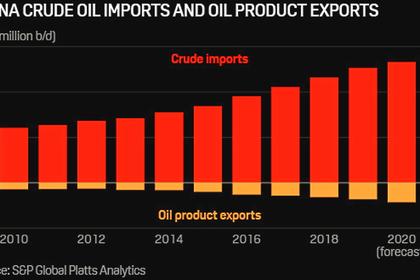
CHINA OIL PRODUCTION WILL UP
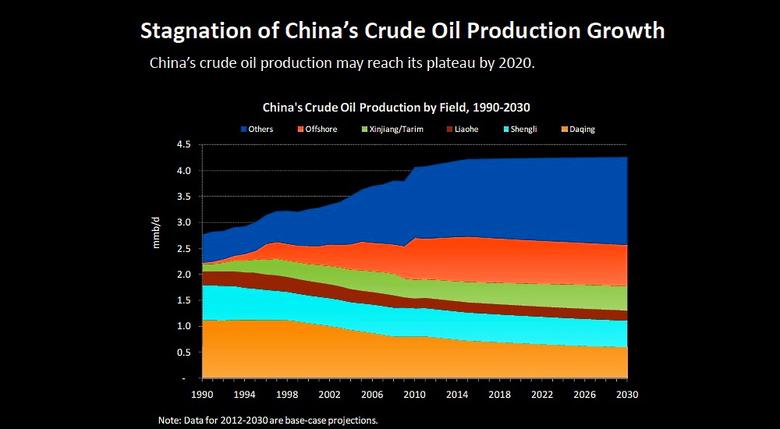
PLATTS - 05 Feb 2021 - China National Offshore Oil Corporation Ltd., or CNOOC, targeted to produce 545 million-555 million barrels of oil equivalent, or 1.49 million-1.52 million boe/d, of oil and gas in 2021, up about 4.5% from its estimated production of 528 million boe in 2020, on the back of contribution from its 19 new projects, including Buzzard oil field phase II, CFO Xie Weizhi said in the company's 2021 business strategy briefing call on late Feb. 4.
The estimated output in 2020 outpaced its target of 505 million-515 million boe set early last year.
The 19 new projects to start up in 2021 are expected to contribute 221,232 b/d toward the company's peak production.
In comparison, CNOOC commenced production at eight new projects last year, which contributed a total of 174,652 boe/d to its peak output.
The new projects for 2021 included Buzzard Phase II in the North Sea, commissioning of which was postponed from the second half of 2020.
Peak production of the Buzzard Phase II, expected to start up in 2021, was also lowered to 12,000 boe/d with four wells from the 37,000 boe/d stated in CNOOC's 2020 plan.
CNOOC holds a 43.21% interest and acts as an operator in the project.
The other new project in overseas was Mero oil field Phase I in Brazil, in which CNOOC holds a 10% interest with 171,000 boe/d of peak output.
The rest 17 projects were in China offshore as the company tries to boost domestic production. The projects are expected to hike CNOOC's domestic output to account for 68% of its global production from 67% in 2020.
These domestic projects included the leading 58,000 boe/d Lingshui 17-2 gas field development and 42,600 boe/d Lufeng oil fields regional development.
To meet its development target, CNOOC lifted its budget in development to account for 61% of it total capital expenditure of Yuan 90-100 billion ($13.92 billion-$15.47 billion), Xie said, adding that the 2021 budget was set on the Brent price assumption of $50/b.
The company' 2020 estimated capex was at Yuan 79.5 billion and about 58% of the expense went to development.
Annual output growth at 8% in 2022, 2023
Looking forward, CNOOC targeted to produce 590 million-600 million boe of oil and gas in 2022 and 640 million-650 million boe in 2023, representing above 8% annual growth, according to Xie.
Meanwhile, the proportion of domestic production was set to fall to 66% in its global output from 68% in 2021, suggesting more overseas projects would start up or resume production as oil price recovers. CNOOC has cut its oil sand and shale production in North America in 2020 due to low oil price.
CNOOC's CEO Xu Keqiang continued to emphasize the future target to significantly lift gas output to account for 30% of the company's production mix from the current 21%.
Xu said domestic gas reserves were sufficient enough to support CNOOC to achieve the goal. The reserves include assets such as the offshore gas fields Lingshui 17-2 and Bozhong 19-6.
The Lingshui 17-2 field will provide stable gas supply of more than 3 Bcm/year to Guangdong, Hong Kong and Hainan after commissioning.
The successful development of Bozhong 19-6, with recoverable reserves of 171 Bcm, provided CNOOC valuable experience in developing the gas-rich Bohai Bay, Xu added.
CNOOC commenced the Bozhong 19-6 condensate gas field pilot area on Oct. 22 last year, with its output estimated at about 35.32 Mcf/d of gas and 5,720 b/d of condensate at the end of 2020, the company said in a statement.
Moreover, its acquired unit, China United Coalbed Methane, or CUCBM, also contributed promising unconventional gas output.
Xu said CUCBM targeted to lift its coalbed methane, or CBM, and tight gas output by 52.2% to 3.5 Bcm in 2021 from 2.3 Bcm in 2020 and 1.5 Bcm in 2019, while looking for opportunities to develop shale projects.
Low-carbon development
Lifting of gas output was also a part of the state-owned CNOOC's effort to promote low-carbon transformation to meet China's net zero carbon emissions plan by 2060.
In addition, Xu said the company will gradually implement carbon capture, reinjection and reuse.
The company planned to invest above 5% of its annual budgets in the coming years in new energy sector from the current 3%-5%, especially offshore wind power.
CNOOC in April 2020 won a development license for its second offshore wind power project in Shantou city's waters, Guangdong province, Southern China, Xu said, adding that the project was in early development stage with an expected installed capacity of 1,000 MW.
Its first offshore wind power project, located in the sea area near eastern China Jiangsu province with 300 MW installed capacity, has been connected to the grid and generating power since Sept. 15.
Meanwhile, it planned to commence production in its Qinhuangdao/Caofeidian onshore power project in 2021, reducing CO2 emission by about 170,000 mt/year.
Regarding the sanctions by the US government, Xu said the company will take the initiative to communicate with Washington to dispel misunderstandings on CNOOC's operations.
The listed CNOOC's parent company China National Offshore Oil Corp, or CNOOC Group, on Dec. 3 was added to a US blacklist, forbidding US entities and individuals from making investments in securities issued by the company, effective Jan. 11, with a deadline of Nov. 21, 2021, to dispose of the assets.
Later, the US Commerce Department on Jan. 14 denied CNOOC Group's access to the country's technologies without specific permission.
-----
Earlier:
